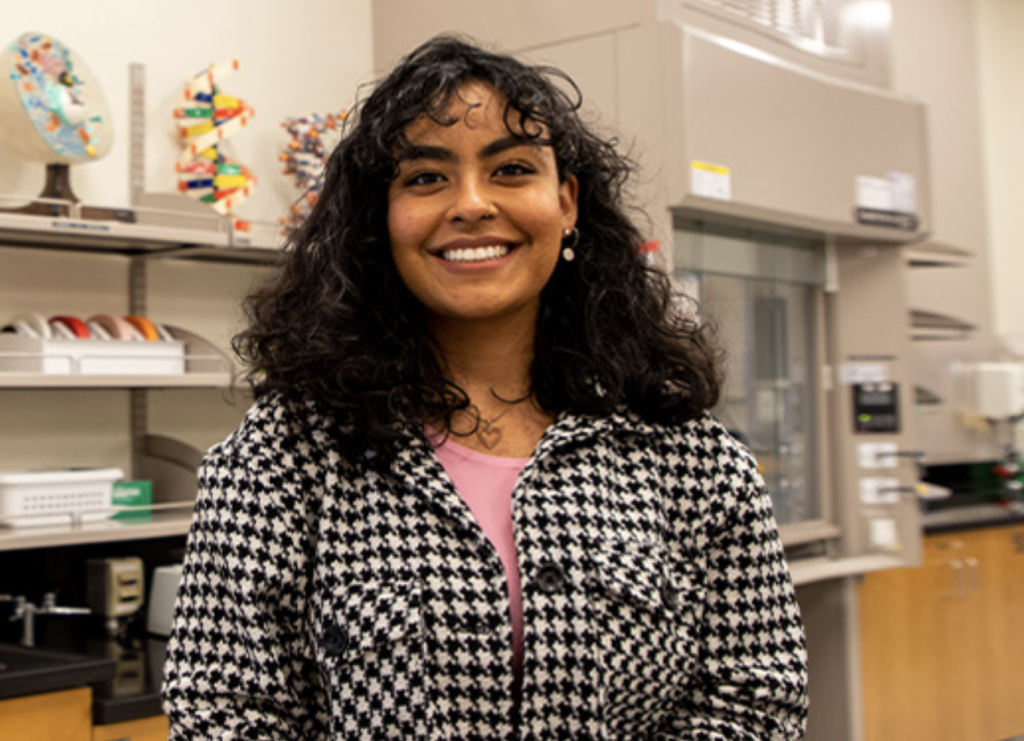Research can be an intimidating word for many students. There is a misconception that research is hard to do as an undergraduate student. This is far from the truth! Many undergraduate students, in different fields of study, conduct research. There are many opportunities across STEM fields, the Arts, and Humanities.
Research opens doors for many students.
Being part of a research team can provide a supportive environment that allows undergraduate students to get a unique, hands-on experience in a field of interest, work with faculty on a research project, and gain skills that they can apply toward a future career. With so many research opportunities, like faculty-led research, Vertically Integrated Projects (VIPs), summer research programs, and other experiences, there are many opportunities for students to get involved.
So, Who Does Research?
Students from many different backgrounds. majors, and academic standing conduct research. It doesn’t matter if you are a student with years of experience or no experience at all, there are research opportunities for you. If you are curious about getting started in research, talk to faculty members, graduate students, and peers in your department to learn about the projects they are working on and how working in research could benefit you. There are so many benefits to working in research, some you may find surprising! We asked some students to share their research stories with us. Two students, Nina and Briana, shared their stories with us and their experience getting started in research.
“As a freshman, I was very nervous about getting involved in research because I honestly did not know what that meant or where to start. I was also afraid that getting involved in research would force me to stay in that field forever, which is just not the reality of it. I was pleasantly surprised when I applied for projects that there were so many faculty on campus that recruit freshmen or students with no research experience. Thankfully, there are many resources on campus that help students who are now in the same position I was in three years ago.
Research is very valuable in any field, not just in engineering which is my field. It gives work experience and allows the student to show curiosity and interest in the field. Research experience sets students apart from others because it allows them to apply their academic skills in a hands-on setting, something not all students can say they have done. Research also helps student network and make industry connections that go beyond the classroom.”
-Nina, Mechanical Engineering Student


“As a transfer student from Pima Community College, I initially struggled with time management and could not fathom the idea of conducting research at the same time. After a semester, I became situated here at the University of Arizona and heard my peers discussing the research they were involved in. I applied for the Undergraduate Research Opportunities Consortium and learned how to reach out to professors.
…[Once getting into a lab] The Ph.D. candidates within the research lab trained me extensively, I now feel comfortable running experiments on my own! Being in a research lab is like a safe spot, if I have any questions related to my classes outside of research the graduate students are ecstatic to answer them. I am grateful to be in a supportive research lab that truly wants undergraduates to succeed in life, not just research. The experience has helped me be okay with messing up and making mistakes. I am in a wonderful environment where when I make a mistake it is corrected with compassion. I have learned how to communicate better with my team, properly write in a laboratory notebook, and gain enough confidence to direct my days in the lab. These skills will be carried with me for the rest of my life professionally and personally. The environment I was privileged to be in set high standards for which group I will continue research in graduate school.”
-Briana, Biology Student
Research can support students in different fields, so don’t let misconceptions stop you! Start looking at the research in your department or other areas of interests to see what faculty and graduate students in the department are working on. You might be surprised with what you find! You can also meet with an Undergraduate Research Ambassador to get support finding a research experience that fits your interests, time, and needs.
Need Help Finding Research? Meet with an Undergraduate Research Ambassador (URA)!

